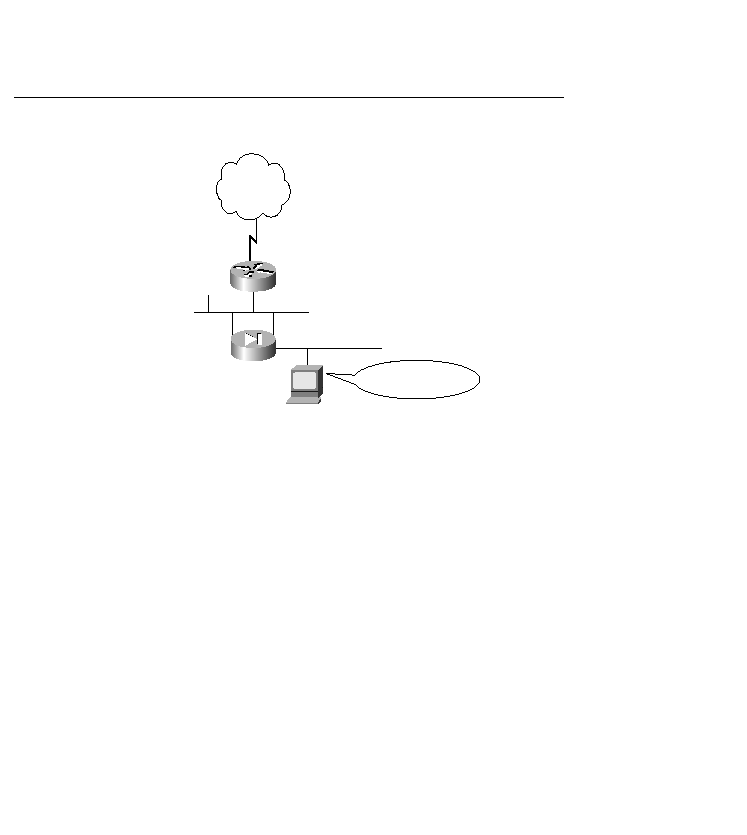
policy between two different networks. Because this definition is very generic, any network
access control mechanism can be a firewall. Firewalls can set up access control lists on routers,
application proxies, or a dedicated piece of hardware such as the PIX 520.
security policy. A customer can't make the Internet behave in a certain way. In the early days
of the Internet, an installation might have had 1000 UNIX systems connected to the Internet
without a firewall. When a security hole was discovered in the UNIX system, 1000 devices had
to be upgraded, as illustrated in Figure 15-3.
devices are protected behind the firewall. It is much easier to monitor one box rather than 1000.
Also, today's networks have many more devices running other operating systems, such as
Windows, Novell, and so on, that have their own security weaknesses. Firewalls are not the best
solution because they add an element of delay and must be monitored extensively. Using
firewalls together with securing systems is the best solution for now.